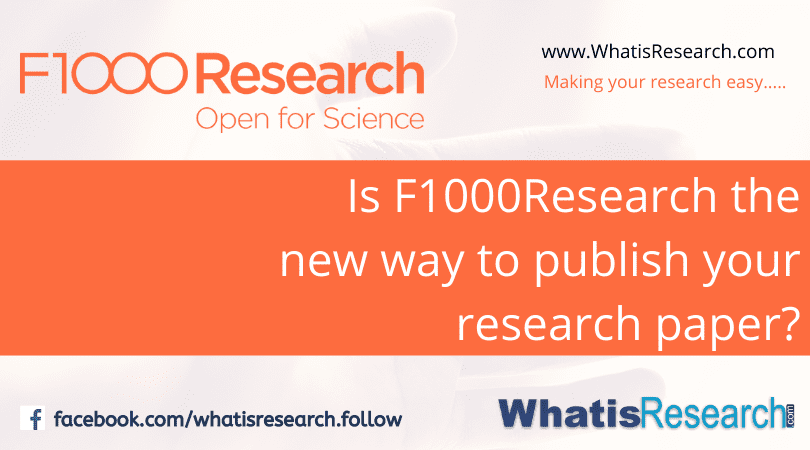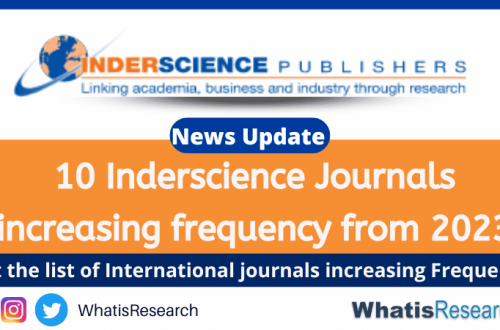It’s very important to publish the research paper on time to have a bigger impact. But our existing review process is a time that takes time. If you are a researcher and scholar looking for a high-quality research publication for your research paper for career advancement or to showcase the research then this article will guide you. Here we will discuss Is F1000Research the new way to publish your research paper?
Is F1000Research the new way to publish your research paper?
Journal Publication process
Before getting into the details lets understand how the journal publishers publish a paper. Once the publisher receives the paper it goes for an initial round review to match the Aim and Scope of the paper.
Once it satisfies the papers goes to the peer reviews. Regarding the Peer review types, it depends on the publisher’s policy. Once the review over the editor sends the acceptance of the papered to the author and ask for the copyright form and the APC (if applicable).
After that, the paper gets for a language and grammar check. After that, the paper gets published.
Generally, all publishers do the same work during the pre-publishing stage. The entire process takes 30 to 120 days and sometimes it takes a year to publish the paper.
The traditional way of publication having many advantages and disadvantages also. The advantages are the goes through the peer review process which main the stand of research and journal. The impact factor and indexing get improved. But it takes a lot of time. What is the solution?
Taylor & Francis’ journals comes a new way to publish a paper. F1000Research is an open research publishing platform, offering rapid publication of articles and other research outputs across physical and life sciences, engineering, medicine, social sciences and humanities. With F1000Research you can publish your results rapidly.
What is F1000Research?
F1000Research is an open access publishing platform supporting data deposition and sharing.
It can Publish all your findings including null results, data notes and more. This helps in engaging with the reviewers openly and transparently. Due to this impact of your research gets accelerated.
What are the benefits?
This aims to shift the way research and researchers are evaluated and bring a new change in the peer-review process.
It enables authors, not the editors, to decide what they wish to publish. Here the author decides the peer reviewers. It also reduces research waste and helps to remove the bias in our understanding of research.
It reduces the barrier to collaborative research through data sharing, transparency
Also read: 5 Best tips for choosing the right Journal
What is the Publication process?
Submit an article : Once your paper gets ready you can submit the paper ina single-page submission system. The in-house editorial team carries out a comprehensive set of prepublication checks to ensure that all policies and ethical guidelines are adhered to. Submit your article by clicking here https://f1000research.com/for-authors/publish-your-research . You need to log in https://f1000research.com/login
You can track your paper by ID and password.
F1000Research articles are usually published under a CC BY license, which permits unrestricted use, distribution, and reproduction in any medium provided the original work is properly cited and leaves the copyright of the article with the current copyright holder (usually the author or their institution).
F1000Research publication fees
| WORD COUNT | PRICE* |
| up to 1000 words (short article) | US $150 |
| 1000-2500 words (medium article) | US $500 |
| 2500-8000 words (long article) | US $1000 |
| 8000-15,000 words (extra long article) # | US $2000 |
Posters & Slides publication
F1000Research publishes scholarly posters and slides covering basic scientific, translational and clinical research within the life sciences and medicine; other formats may be considered in the future. But unlike articles, posters and slides are not peer-reviewed in F1000Research.
Also read: Best social networking site for Scientists and Researchers
Indexing of F1000Research
Once an article passes peer review process it will be indexed in PubMed, PubMed Central, MEDLINE, Europe PMC, Scopus, Chemical Abstract Service, British Library, CrossRef, DOAJ and Embase. If an article is indexed, all versions, along with the peer review reports, are deposited.
Here is the F1000Research SciMagoir link https://www.scimagojr.com/journalsearch.php?q=21100258853&tip=sid
Posting a Comment on an F1000Research Article
F1000Research encourages constructive debate on articles and other content published in F1000Research. To submit a comment about the article in general, either click the link to ‘Add a comment’ in the sidebar or go to the end of the article page and click ‘Comment’.
To comment on a particular reviewer report, click the link to read the report in the table in the sidebar and then click ‘Respond’. You will be prompted to log in to/register an account before you can comment. Comments are automatically labeled with your role, be it author, reviewer, or reader.
Similarly, to comment on a poster, slide or document, go to the bottom of the page of the specific research output you want to comment on and click ‘Add your comment’.
Final Words
As you are gone through the article Is F1000Research the new way to publish your research paper? now you must have a clear idea about it.






